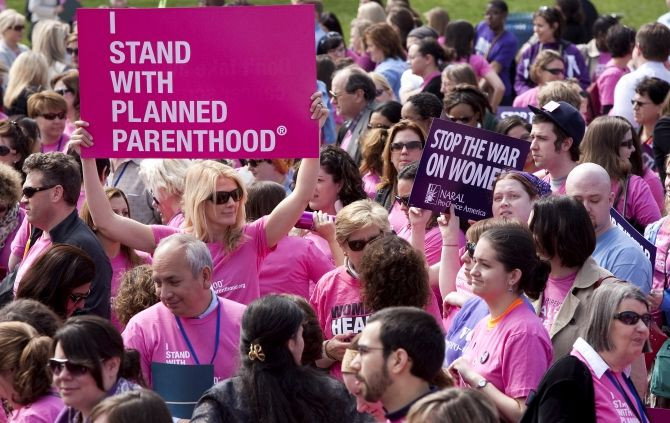Komen Scandal Was the Best Thing that Could Have Happened for Planned Parenthood Patients

Planned Parenthood announced yesterday that it was rolling out a new breast-health initiative, using the funds obtained from the January dust-up with the breast cancer non-profit, Susan G. Komen Foundation.
In January, the Susan G. Komen Foundation withdrew its support for Planned Parenthood. The organization had been giving annual grants to the family-planning center for use in breast cancer screenings. The controversy left Planned Parenthood worried that the lack of money would lead to fewer breast cancer screenings.
But Planned Parenthood saw a windfall as people poured in donations to the organization. They plan on using $3 million of that money ($250,000 of which came from New York mayor Michael Bloomberg) to help pay for mammograms for women over the age of 40, as well as for clinical breast exams for women between the ages of 20 and 30 every three years. The money will also finance biopsies and ultrasounds, a welcome advance for people who do not have insurance. Planned Parenthood previously was only able to provide referrals for follow-up care if they found something abnormal during screenings. The organization will also use the funds for an "assessment tool" that will assess each patient's cancer risk. Money will also be used in outreach for women under the age of 40 and for Latina patients who, for some reason, have disproportionately high rates of dying from breast cancer.
The Susan G. Komen Foundation has not fared quite as well. In the months since the controversy, there have been quite a few shake-ups in the upper tiers of management.
Planned Parenthood's measures do run counter to the United States Prevention Task Force's recommendations, which state that mammograms should take place between the ages of 50 and 74. The USTPF also says that mammograms should be done every other year rather than annually. In addition, they say that screening mammograms for younger women should be a personal choice.
But Planned Parenthood thinks that the benefits of the new initiative will outweigh the drawbacks. Cecile Richards, the Planned Parenthood president, said to the Washington Post, "We felt like we had a real opportunity to do something new."
Despite what would seem like an uncontroversial measure, a writer for pro-choice organization Live Action sniffed, "I will believe it when I see it." At least one another writer for the website has called Planned Parenthood an "abortion mill".
Published by Medicaldaily.com



























